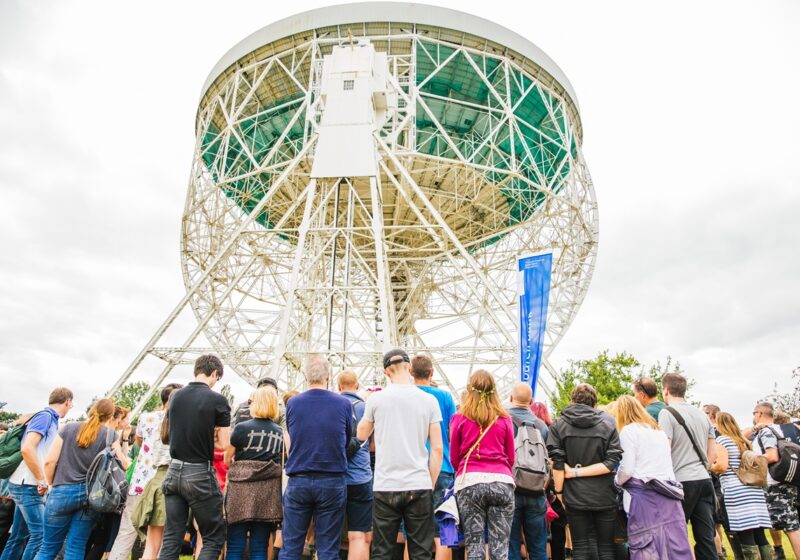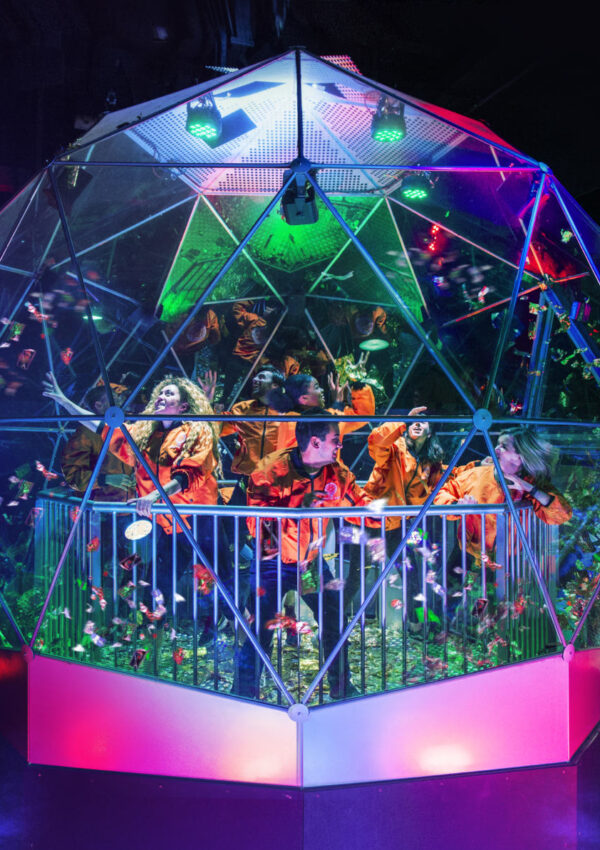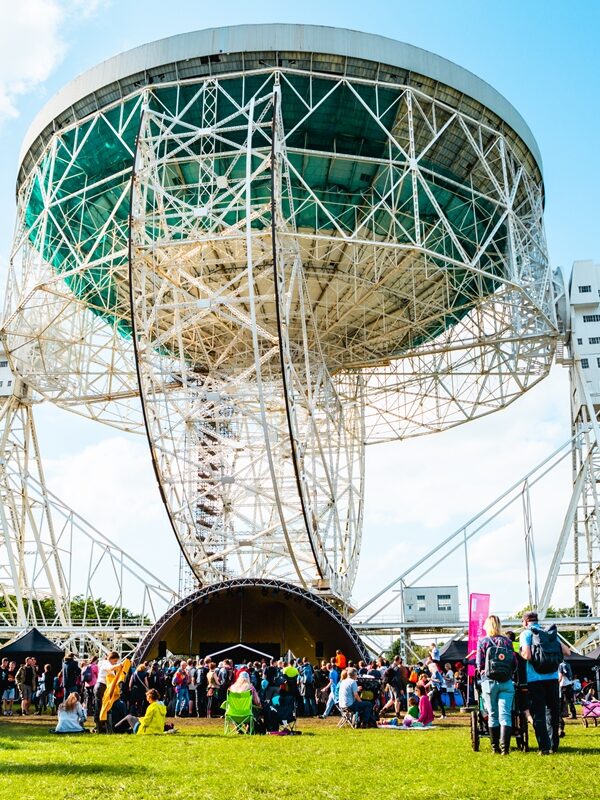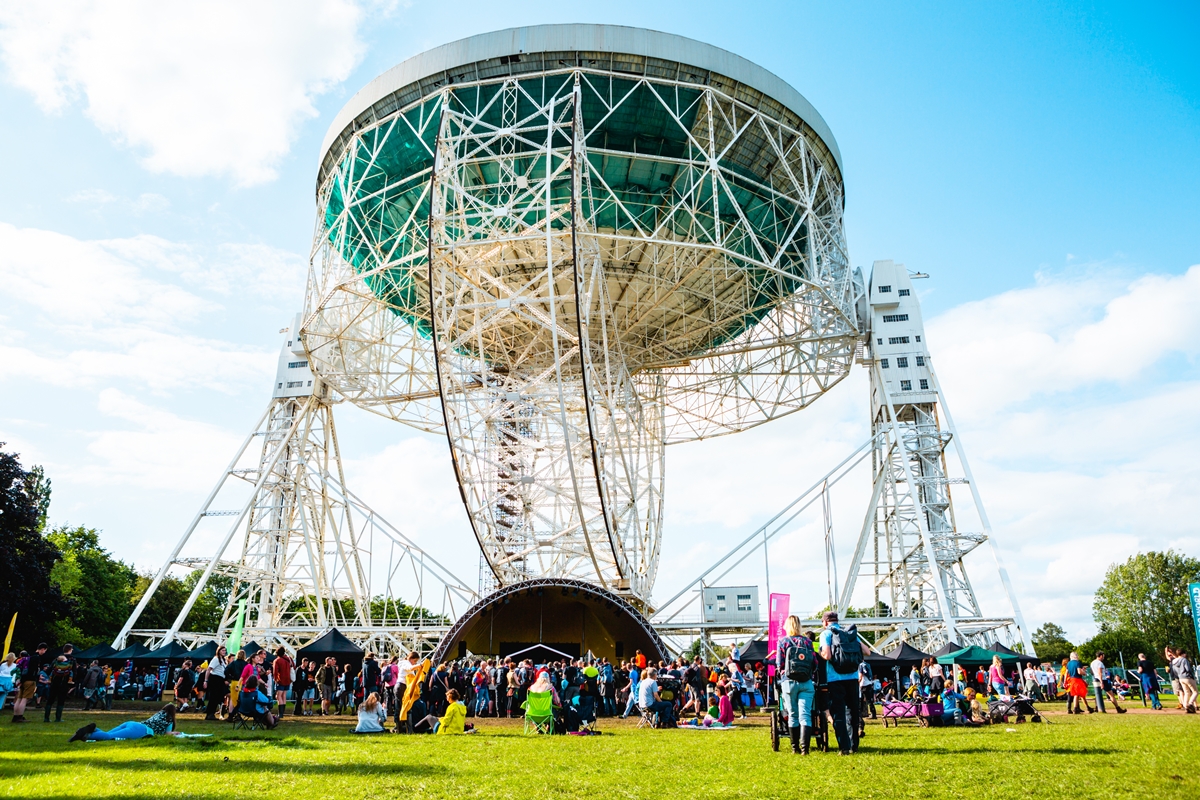Almost 74 years after being established in a potato field in Cheshire, Jodrell Bank Observatory has at long last been acknowledged as a UNESCO World Heritage Site, owing to its globally significant role in transforming the field of astronomy. The honour was announced in July alongside others including the Hyrcanian Forests of Iran and the entire city of Jaipur, India, making this the UK’s 32nd entry on the list.
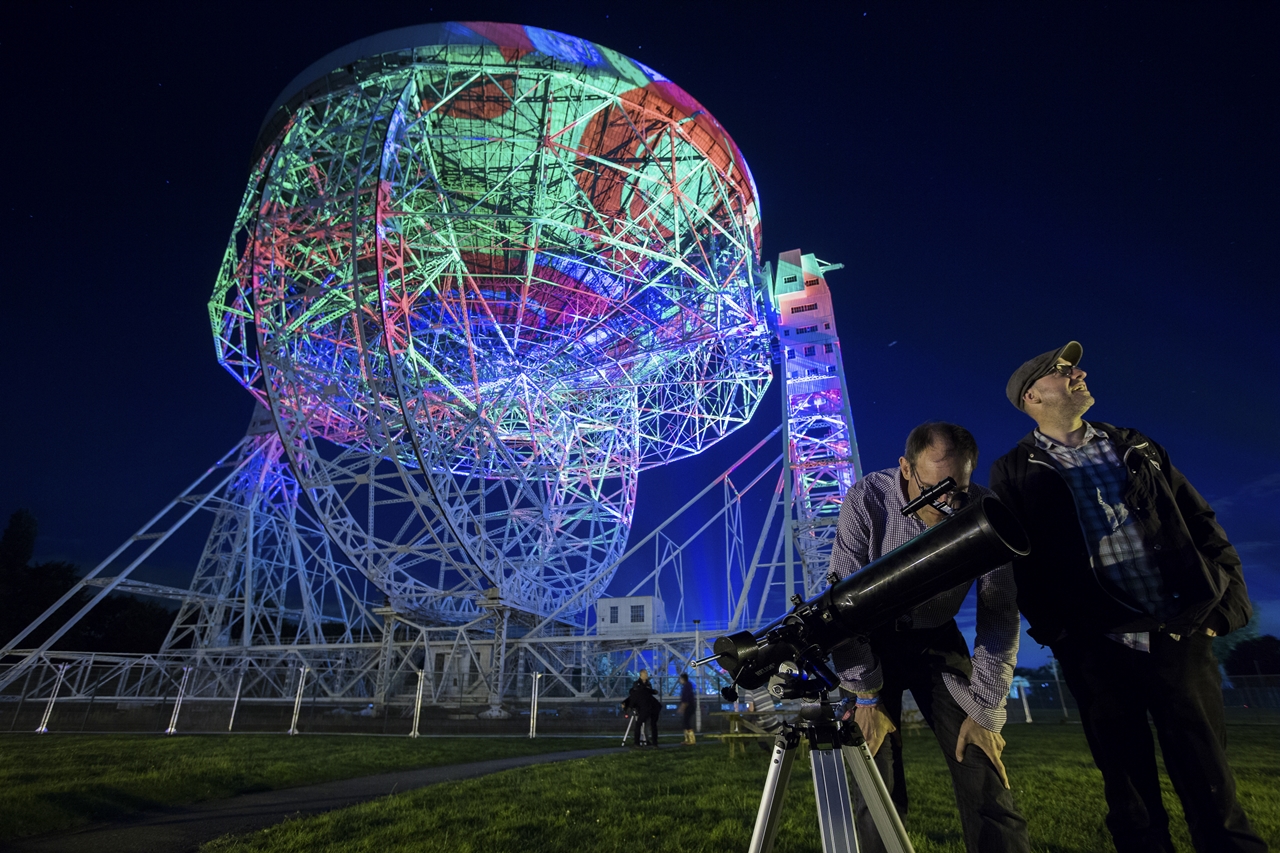
The site was home to Manchester University’s Department of Botany until December 1945 when founder Sir Bernard Lovell requested a space away from the city centre to better study cosmic radio waves. Sir Bernard found that the tramlines on Oxford Road interfered with his instruments, leftover military radars from World War II.
Lovell spent 12 years at the site, using the smaller Transit Telescope, before the completion of the now world famous radio telescope in 1957, then known as the Mark 1 but now officially the Lovell Telescope. Operational just in time for the launch of Sputnik 1, the world’s first artificial satellite, the Mark 1 was the largest radio telescope in the world and today sits in 3rd place after Green Bank, USA and Effelsberg, Germany.
Historically, Jodrell Bank played a vital role in mediating the space race between the US and USSR and from its inception firmly established the science of radio astronomy. Today it remains at the forefront of deep space observation and education, being the headquarters of the Square Kilometre Array, a truly breath taking project spanning Australia and South Africa with thousands of smaller radio receivers that when networked together will create the largest radio telescope array ever.
Visitors these days can expect to find well-maintained gardens surrounding the monolithic structure, continuing the spirit of the Botany Department, as well as several centres exhibiting everything you could ever need to know about Jodrell Bank and its myriad of discoveries. A guaranteed great day out for all the family, with plenty of hands on activities and learning including rocket making, a walking tour of the telescope and getting hands on with moon rocks.
In recent years, the grounds have hosted Bluedot festival, a small music, science and arts festival, which in 2019 coincided with the 50th anniversary of the Moon landings. Be sure to check out our review of Bluedot.
Jodrell Bank is also part of Cheshire’s latest arts and culture initiative Cheshire: Where Science Meets Nature, aiming to promote the best of the county’s scientific and natural assets.
To plan your visit head over to their website and look forward to exploring one of our regions’ most intriguing destinations.

